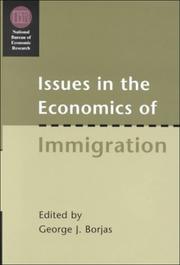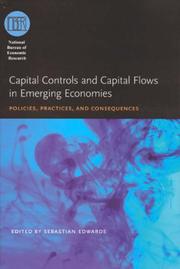| Listing 1 - 10 of 12 | << page >> |
Sort by
|
Book
Year: 2012 Publisher: Munich, Germany : Südosteuropa-Gesellschaft, in cooperation with the Center for European and Russian Studies, University of California,
Abstract | Keywords | Export | Availability | Bookmark
 Loading...
Loading...Choose an application
- Reference Manager
- EndNote
- RefWorks (Direct export to RefWorks)
Literaturangaben. Durchsuchbare elektronische Faksimileausgabe als PDF. Digitalisiert im Rahmen des DFG-Projektes Digi20 in Kooperation mit der BSB München. OCR-Bearbeitung durch den Verlag Otto Sagner.
Structural adjustment (Economic policy) --- Post-communism --- Europe, Eastern --- Economic policy --- 1990s --- Berend --- Central --- Changes --- Eastern --- Europe --- Long --- Politik --- Serbien --- Slavische Sprachwissenschaft --- Structural --- Südosteuropa --- Term --- Transforming --- Zeitgeschichte
Book
ISBN: 3839441897 3837641899 Year: 2018 Publisher: Bielefeld transcript Verlag
Abstract | Keywords | Export | Availability | Bookmark
 Loading...
Loading...Choose an application
- Reference Manager
- EndNote
- RefWorks (Direct export to RefWorks)
Von der kommunistischen Gleichmacherei zur bürgerlichen Sphärentrennung? Nach 1989 wird die Geschlechterordnung in Polen zu einer Gretchenfrage. Die postsozialistische Identitätssuche zwischen Liberalisierung und Konservatismus, zwischen transnationaler Anbindung und erstarkendem Polentum bringt einen von inneren Widersprüchen geprägten feministischen Diskurs hervor. Nina Seiler zeigt anhand detailreicher Textanalysen zu Werken feministischer Polonistik der 1990er Jahre theoretische und soziopolitische Anknüpfungspunkte und Divergenzen auf. Der zunehmenden Spaltung der polnischen Gesellschaft wird mittels Konzepten von Intertextualität, Intonation und Ideologem nachgegangen. »Eine detailreiche, gut lesbare Studie [...], die wichtige Einblicke in die Anfänge der feministischen Theorieentwicklung in Polen liefert.« Katarzyna Sliwinska, Zeitschrift für Ostmitteleuropa-Forschung, 69/3 (2020)
Gender studies, gender groups --- 1990s. --- Cultural Studies. --- Feminism. --- Gender Studies. --- Gender. --- General Literature Studies. --- Literature. --- Postsocialist Society. --- Slavic Studies. --- Polen; Feminismus; Postsozialistische Gesellschaft; 1990er Jahre; Gender Studies; Geschlecht; Literatur; Slavistik; Allgemeine Literaturwissenschaft; Kulturwissenschaft; Poland; Feminism; Postsocialist Society; 1990s; Gender; Literature; Slavic Studies; General Literature Studies; Cultural Studies
Book
ISBN: 3839453267 3837653269 Year: 2021 Publisher: Bielefeld transcript Verlag
Abstract | Keywords | Export | Availability | Bookmark
 Loading...
Loading...Choose an application
- Reference Manager
- EndNote
- RefWorks (Direct export to RefWorks)
Der US-amerikanische Architekturdiskurs der 1990er Jahre ist entscheidend von den Theorien Gilles Deleuzes geprägt. Die Aneignung seiner philosophischen Konzepte und jener, die er gemeinsam mit Félix Guattari entwickelt hat, findet vor allem innerhalb des architekturtheoretischen Netzwerks der »Anyone Corporation« statt: In ihren Diskursen wimmelt es von glatten Räumen, organlosen Körpern, Rhizomen, Falten, abstrakten Maschinen und Diagrammen. Frederike Lausch zeigt auf, wie sich die »Anyone Corporation« durch die Bezugnahme auf Deleuze als intellektuelle Elite der Architekturdisziplin inszeniert und wie im Zuge der Entpolitisierung seiner Theorien die »Post-Criticality«-Bewegungen entstehen.
Architecture. --- ARCHITECTURE / Urban & Land Use Planning. --- 1990s. --- Body. --- Culture. --- Félix Guattari. --- Gilles Deleuze. --- Philosophy of Culture. --- Philosophy. --- Post-structuralism. --- Space. --- Theory. --- USA. --- Architecture, Western (Western countries) --- Building design --- Buildings --- Construction --- Western architecture (Western countries) --- Art --- Building --- Design and construction --- Architektur; Philosophie; 1990er Jahre; USA; Post-Criticality; Gilles Deleuze; Félix Guattari; Raum; Körper; Rhizom; Theorie; Kultur; Kulturphilosophie; Poststrukturalismus; Architecture; Philosophy; 1990s; Space; Body; Theory; Culture; Philosophy of Culture; Post-structuralism --- Deleuze, Gilles, --- Deleuze, G. --- Delëz, Zhilʹ, --- Dūlūz, Jīl, --- Delezi, Jier, --- دولوز، جيل

ISBN: 0226066312 9786611430795 128143079X 0226066673 9780226066677 9780226066318 9780226066318 6611430792 Year: 2000 Publisher: Chicago University of Chicago Press
Abstract | Keywords | Export | Availability | Bookmark
 Loading...
Loading...Choose an application
- Reference Manager
- EndNote
- RefWorks (Direct export to RefWorks)
The United States is now admitting nearly one million legal immigrants per year, while the flow of illegal aliens into the country continues to increase steadily. The debate over immigration policy has typically focused on three fundamental questions: How do immigrants perform economically relative to others? What effects do immigrants have on the employment opportunities of other workers? What kind of immigration policy is most beneficial to the host country? This authoritative volume represents a move beyond purely descriptive assessments of labor market consequences toward a more fully developed analysis of economic impacts across the social spectrum. Exploring the broader repercussions of immigration on education, welfare, Social Security, and crime, as well as the labor market, these papers assess dimensions not yet taken into account by traditional cost-benefit calculations. This collection offers new insights into the kinds of economic opportunities and outcomes that immigrant populations might expect for themselves and future generations.
Emigration and immigration --- Economic aspects --- History. --- Immigration --- International migration --- Migration, International --- Population geography --- Assimilation (Sociology) --- Colonization --- E-books --- immigrant, economy, economics, legal, united states, usa, america, american, debate, controversy, controversial, finance, financial, money, wealth, income, worker, employment, career, job, workplace, policy, education, welfare, social security, crime, cost benefit, congress, diversity, trends, implications, 1940s, 1970s, 1990s, deportation. --- History
Book
Year: 2020 Publisher: Oakland University of California Press
Abstract | Keywords | Export | Availability | Bookmark
 Loading...
Loading...Choose an application
- Reference Manager
- EndNote
- RefWorks (Direct export to RefWorks)
A free open access ebook is available upon publication. Learn more at www.luminosoa.org. Chicago is home to one of the largest, most politically active Palestinian immigrant communities in the United States. For decades, secular nationalism held sway as the dominant political ideology, but since the 1990s its structures have weakened and Islamic institutions have gained strength. Drawing on extensive fieldwork and interview data, Palestinian Chicago charts the origins of these changes and the multiple effects they have had on identity across religious, political, class, gender, and generational lines. The perspectives that emerge through this rich ethnography challenge prevailing understandings of secularity and religion, offering critical insight into current debates about immigration and national belonging.
Palestinian Americans --- Palestinian Arabs --- HISTORY / United States / State & Local / General. --- Social conditions. --- History --- 1990s. --- academic. --- american cities. --- american history. --- american immigrants. --- chicago. --- classism. --- fieldwork. --- gender roles. --- generational. --- government. --- immigrant communities. --- immigrant population. --- immigrant story. --- interviews. --- islam. --- islamic. --- nationalism. --- nationalist. --- palestine. --- palestinian immigrant. --- political. --- politics. --- religion. --- religious persecution. --- religious studies. --- scholarly. --- secular. --- social class. --- us history.
Book
ISBN: 3631753675 3631572018 Year: 2008 Publisher: Frankfurt am Main : Peter Lang GmbH, Internationaler Verlag der Wissenschaften,
Abstract | Keywords | Export | Availability | Bookmark
 Loading...
Loading...Choose an application
- Reference Manager
- EndNote
- RefWorks (Direct export to RefWorks)
The Paraguayan economy did not suffer debt crises in the eighties and had significant growth rates in the second half on the seventies, but poverty remained a problem. Understanding the performance and spatial distribution of poverty and inequality over a period of more than ten years can shed new light on structural causes behind what seems to be a low growth – high poverty – high inequality trap in Paraguay. How did poverty and inequality change during the 1990s. Did inequality reduce income growth? What were the growth determinants and what are the main forces driving inequality changes? These are the questions being answered in this book.
Political science & theory --- Political structure & processes --- Monetary economics --- Development economics & emerging economies --- Paraguay --- Economic conditions --- 1990s --- Aspects --- Decomposition --- Determinants --- During --- Einkommensverteilung --- Geschichte 1992-2005 --- Growth --- Growth Determinants --- Income --- Inequality --- Lateinamerika --- Otter --- Poverty --- Poverty Maps --- Spatial --- Spatial Economics --- Political science --- Monetary policy. --- Development economics. --- Monetary management --- Economic policy --- Currency boards --- Money supply --- Administration --- Civil government --- Commonwealth, The --- Government --- Political theory --- Political thought --- Politics --- Science, Political --- Social sciences --- State, The --- Economics --- Economic development
Book
ISBN: 0520968794 0520296206 9780520968790 9780520296206 Year: 2017 Publisher: Oakland, California University of California Press
Abstract | Keywords | Export | Availability | Bookmark
 Loading...
Loading...Choose an application
- Reference Manager
- EndNote
- RefWorks (Direct export to RefWorks)
"In the 1990s, Los Angeles was home to numerous radical social and environmental eruptions. In the face of several major earthquakes and floods, riots and economic insecurity, police brutality and mass incarceration, some young black Angelenos turned to holy hip hop--a movement merging Christianity and hip hop culture--to 'save' themselves and the city. Converting street corners to airborne churches and gangsta rap beats into anthems of praise, holy hip hoppers used gospel rap to navigate complicated social and spiritual realities and to transform the Southland's fractured terrains into musical Zions. Armed with beats, rhymes, and Bibles, they journeyed through black Lutheran congregations, prison ministries, African churches, reggae dancehalls, hip hop clubs, Nation of Islam meetings, and Black Lives Matter marches. Zanfagna's fascinating ethnography provides a contemporary and unique view of black LA, offering a much-needed perspective on how music and religion intertwine in people's everyday experiences."--Provided by publisher.
Rap (Music) --- Christian rap (Music) --- Music --- Art music --- Art music, Western --- Classical music --- Musical compositions --- Musical works --- Serious music --- Western art music --- Western music (Western countries) --- Christian hip-hop --- Gospel hip-hop --- Contemporary Christian music --- Hip-hop music --- Rap songs --- Rappin' (Music) --- Rapping (Music) --- African Americans --- Monologues with music --- Popular music --- Trip hop (Music) --- Religious aspects --- Christianity. --- History and criticism. --- 1990s. --- african american culture. --- anthems of praise. --- beats. --- bibles. --- black lives matter. --- black los angeles. --- christianity. --- churches. --- earthquakes. --- economic insecurity. --- environmental eruption. --- ethnomusicology. --- floods. --- gangsta rap. --- gospel rap. --- hip hop culture. --- hip hop. --- los angeles. --- lutheran. --- music. --- musical philosophy and social aspects. --- rap music. --- rhymes. --- riots. --- southland. --- spiritual realities.

ISBN: 0520930207 1417525746 0520238877 0520238885 9780520930209 9781417525744 9780520238879 9780520238886 Year: 2004 Volume: 6 Publisher: Berkeley, Calif. University of California Press
Abstract | Keywords | Export | Availability | Bookmark
 Loading...
Loading...Choose an application
- Reference Manager
- EndNote
- RefWorks (Direct export to RefWorks)
This book illuminates one of the world's most troubled regions from a unique perspective-that of a prominent Russian intellectual. Valery Tishkov, a leading ethnographer who has also served in several important political posts, examines the evolution of the war in Chechnya that erupted in 1994, untangling the myths, the long-held resentments, and the ideological manipulations that have fueled the crisis. In particular, he explores the key themes of nationalism and violence that feed the turmoil there. Forceful, original, and timely, his study combines extensive interview material, historical perspectives, and deep local knowledge. Tishkov sheds light on Chechnya in particular and on how secessionist conflicts can escalate into violent conflagrations in general. With its balanced assessments of both Russian and Chechen perspectives, this book will be essential reading for people seeking to understand the role of Islamic fundamentalist nationalism in the contemporary world.
Chechni?a (Russia). --- Chechni?a? (Russia)-- History-- Civil War, 1994-- -Social aspects. --- Regions & Countries - Europe --- History & Archaeology --- Russia & Former Soviet Republics --- Chechni͡a (Russia) --- History --- Social aspects. --- Chechnya (Russia) --- Respublika Czeczenska (Russia) --- Chechenskai︠a︡ Respublika (Russia) --- Chechenskaya Respublika (Russia) --- Chechynya (Russia) --- Czeczna (Russia) --- Chechenia (Russia) --- Tschetschenien (Russia) --- Cecenia (Russia) --- Shīshān (Russia) --- Cecīniyā (Russia) --- Sheeshan (Russia) --- Checheno-Ingushetia (Russia) --- Чечня (Russia) --- Чеченская Республика (Russia) --- Chechni︠a︡ (Russia) --- Tchétchénie (Russie) --- Personal narratives. --- Histoire --- Récits personnels --- Political sociology --- Internal politics --- International relations. Foreign policy --- Human rights --- Chechnia --- SOCIAL SCIENCE / Anthropology / Cultural & Social. --- 1990s. --- academic. --- chechen conflict. --- chechnya. --- contemporary world. --- deportation. --- ethnographer. --- ethnography. --- family life. --- fundamentalist. --- government. --- historical. --- hostages. --- ideology. --- intellectual. --- international. --- interviews. --- islam. --- islamic. --- modern world. --- modernization. --- morals. --- myth. --- mythology. --- nationalism. --- political. --- politics. --- regional. --- religion. --- revolution. --- russia. --- russian. --- scholarly. --- sociology. --- violence. --- wartime. --- Chechnia (Russia)

ISBN: 0226184978 9780226184975 9786612004827 1282004824 0226184994 9780226184999 Year: 2007 Publisher: Chicago University of Chicago Press
Abstract | Keywords | Export | Availability | Bookmark
 Loading...
Loading...Choose an application
- Reference Manager
- EndNote
- RefWorks (Direct export to RefWorks)
Some scholars argue that the free movement of capital across borders enhances welfare; others claim it represents a clear peril, especially for emerging nations. In Capital Controls and Capital Flows in Emerging Economies, an esteemed group of contributors examines both the advantages and the pitfalls of restricting capital mobility in these emerging nations.In the aftermath of the East Asian currency crises of 1997, the authors consider mechanisms that eight countries have used to control capital inflows and evaluate their effectiveness in altering the maturity
AA / International- internationaal --- NDC / Newly Industrialized Countries --- 382.242.0 --- 382.253 --- 333.454.0 --- Capital movements --- -332.042409172 --- Capital flight --- Capital flows --- Capital inflow --- Capital outflow --- Flight of capital --- Flow of capital --- Movements of capital --- Balance of payments --- Foreign exchange --- International finance --- Balans van het kapitaalverkeer: algemeenheden. --- Deviezencontrole (ivm betaligsbalans). --- Deviezencontrole: algemeenheden. --- Capital movements - Developing countries. --- Capital movements. --- Finance --- Business & Economics --- International Finance --- E-books --- 332.042409172 --- Deviezencontrole: algemeenheden --- Balans van het kapitaalverkeer: algemeenheden --- Deviezencontrole (ivm betaligsbalans) --- money, finance, wealth, monetary, income, power, financial, economics, economy, policy, analysis, flow, welfare, nation, emerging, restrictions, east asia, currency, currencies, crisis, 1990s, 20th century, history, historical, academic, scholarly, research, contemporary, modern, international, globalization, account, debt, management, microeconomic, comparison, exchange, macroeconomic.
Book
ISBN: 9780226775067 9780226775050 0226775062 0226775054 9780226775074 0226775070 1282894803 9781282894808 9786612894800 Year: 2010 Publisher: Chicago University of Chicago Press
Abstract | Keywords | Export | Availability | Bookmark
 Loading...
Loading...Choose an application
- Reference Manager
- EndNote
- RefWorks (Direct export to RefWorks)
At the heart of The Republic of Love are the voices of three musicians-queer nightclub star Zeki Müren, arabesk originator Orhan Gencebay, and pop diva Sezen Aksu-who collectively have dominated mass media in Turkey since the early 1950's. Their fame and ubiquity have made them national icons-but, Martin Stokes here contends, they do not represent the official version of Turkish identity propagated by anthems or flags; instead they evoke a much more intimate and ambivalent conception of Turkishness. Using these three singers as a lens, Stokes examines Turkey's repressive politics and civil violence as well as its uncommonly vibrant public life in which music, art, literature, sports, and journalism have flourished. However, Stokes's primary concern is how Müren, Gencebay, and Aksu's music and careers can be understood in light of theories of cultural intimacy. In particular, he considers their contributions to the development of a Turkish concept of love, analyzing the ways these singers explore the private matters of intimacy, affection, and sentiment on the public stage.
Popular music --- Songs, Turkish --- Singers --- Musique populaire --- Chansons turques --- Chanteurs --- History and criticism --- Histoire et critique --- Müren, Zeki, --- Gencebay, Orhan --- Aksu, Sezen --- Yahya Kemal, --- History and criticism. --- Gencebay, Orhan. --- Aksu, Sezen. --- Musical settings --- Turkish songs --- Music, Popular --- Music, Popular (Songs, etc.) --- Pop music --- Popular songs --- Popular vocal music --- Songs, Popular --- Vocal music, Popular --- Music --- Cover versions --- Vocalists --- Musicians --- Kamāl, Yaḥyá, --- Beyatlı, Yahya Kemal, --- Kemal, Yahya, --- Кемал, Яхия, --- Kemal, I︠A︡khii︠a︡, --- Агях, Ахмед, --- Agi︠a︡kh, Akhmed, --- Yıldırım, Fatma Sezen --- musical, musician, turkey, europe, european, eastern, pop, ethnomusicology, queer, nightclub, zeki muren, arabesk, orhan gencebay, diva, genre, sezen aksu, 1950s, present, contemporary, modern, 20th century, 1960s, 1970s, 1980s, 1990s, 2000s, fame, famous, national, politics, political, repression, civil, violence, art, literature, culture, cultural, affection, sentiment, history, historical, criticism. --- Muren, Zeki,
| Listing 1 - 10 of 12 | << page >> |
Sort by
|

 Search
Search Feedback
Feedback About UniCat
About UniCat  Help
Help News
News